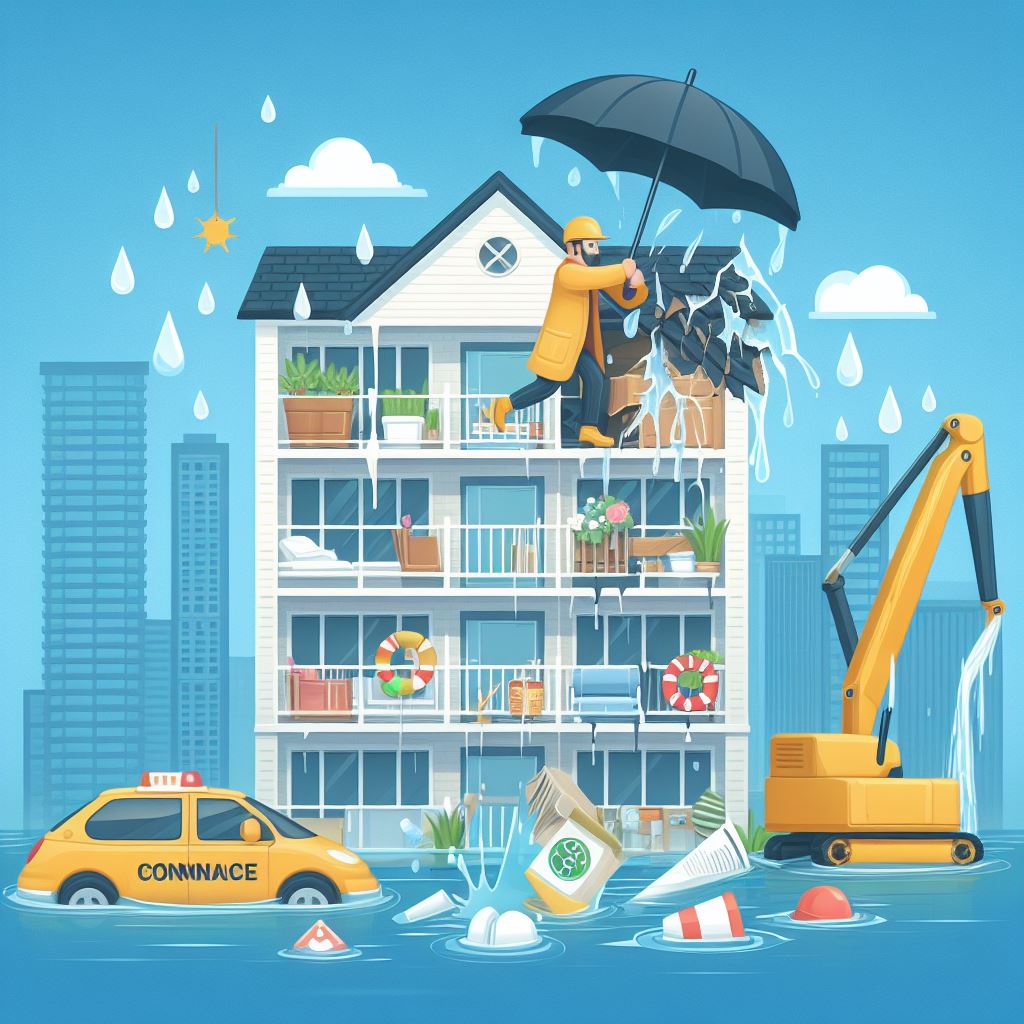When it comes to protecting your condo, water damage can be a major concern. Leaks, appliance malfunctions, and even issues from neighboring units can wreak havoc on your property.
But fear not; condo insurance can offer a safety net in these situations.
However, understanding the specifics of water damage coverage is crucial to ensuring you’re adequately protected.
Does condo insurance cover water damage
What is condo insurance?
Condo insurance, also called condominium unit owner insurance, safeguards your condo unit and its contents.
Unlike homeowners insurance, which covers the entire structure and the land it sits on, condo insurance focuses on your unit’s interior, your personal belongings, and your liability.
Condo insurance typically covers:
- Dwelling Coverage: Protects your unit’s interior, including walls, floors, cabinets, and built-in fixtures, from damage caused by fire, theft, vandalism, and other covered perils.
- Personal Property Coverage: Covers your furniture, electronics, clothes, and other belongings in case of damage or theft.
- Loss of Use Coverage: Helps with additional living expenses like hotel stays or temporary rentals if your condo becomes uninhabitable due to a covered peril.
- Personal Liability Coverage: It protects you if someone gets injured or their property is damaged while visiting your condo.
Does condo insurance cover water damage? How It Works
Let’s talk about water damage coverage in detail. The good news is that condo insurance often covers water damage that starts within your unit.
However, there are important things to remember:
- Sudden and Accidental: Your condo insurance usually covers water damage if it’s sudden and accidental. But if leaks happen due to gradual wear and tear, neglected maintenance, or faulty appliance installations, they might not be covered.
- Source of the Leak: The leak’s source must be within your unit’s plumbing system, appliances, or HVAC system. Damage from leaks in common areas like the roof or walls is typically the condo association’s responsibility under the master policy.
- Flood Damage: Condo insurance usually doesn’t cover flood damage. You’ll need a separate flood insurance policy from the National Flood Insurance Program (NFIP) or private insurers.
Exclusions in Condo Insurance Coverage
Condo insurance protects your unit, but it’s crucial to know what it doesn’t cover:
- Flood Damage: You’ll need a separate flood insurance policy for protection against floods.
- Earthquake Damage: Depending on your location and insurer, earthquake damage might be excluded or require an extra endorsement.
- Intentional Acts: Vandalism or theft is usually covered, but damage caused intentionally by the policyholder is not.
- Mold Growth: While mold stemming from a covered water damage event might be covered, policies may have limitations or require specific remediation procedures.
Benefits of Buying Condo Insurance
Condo insurance provides several advantages beyond water damage protection:
- Financial Protection: It covers repair or replacement costs for covered perils, easing the financial burden.
- Peace of Mind: Knowing you’re financially secure for unexpected events like fire, theft, or water damage brings peace of mind.
- Liability Coverage: It protects against lawsuits if someone is injured or their property is damaged while in your condo.
- Additional Living Expenses: If your condo becomes uninhabitable due to a covered peril, insurance helps with temporary housing costs.
Does condo insurance cover water damage? Alternative Options
Here are some options to consider:
- Flood Insurance: Standard condo insurance doesn’t cover flood damage. To protect your belongings and possibly your unit’s structure, consider getting a separate flood insurance policy from the NFIP or private insurers.
- Dwelling Endorsement: Some condo policies may have limitations on certain types of water damage, like from broken sump pumps or sewer line backups. Adding a dwelling endorsement can extend coverage for these situations.
- Riders for Appliances: If you own expensive appliances like dishwashers or washing machines, consider adding riders to your policy for broader coverage against breakdowns or malfunctions causing water damage.
- Excess Liability Coverage: The standard liability coverage in condo insurance might not be enough if you face a hefty lawsuit over water damage. Buying excess liability coverage offers extra financial protection.
- Review HOA Master Policy: Understand the condo association’s master policy, which typically covers the building’s structure and common areas. Knowing its water damage coverage can help identify any gaps you need to address with your individual condo insurance.
